Health
-
Lin Test
text with link. This is a quiz. Some text Name Name Quo modo autem philosophus loquitur? Tecum optime, deinde etiam cum mediocri amico. Invidiosum nomen est, infame, suspectum. Name Name…
-

Gender-affirming care is rare, study says
Fewer than 1 in 1,000 transgender youth receive hormones or puberty blockers

-

Nature offers novel approach to oral wound care
Slug’s sticky mucus inspiration behind adhesive hydrogel that can seal wounds in wet environment

-

Time for a rethink of colonoscopy guidelines?
Change informed by new findings would help specialists focus on those most at risk, researcher says

-

Should pharmacists be moral gatekeepers?
‘The problem is not opioids,’ says author of ‘Policing Patients’ — it’s overdose, pain
-

The deadly habit we can’t quite kick
Actions by tobacco companies worry researcher even amid ‘dramatic decrease’ in smoking among young Americans

-
An opening against Alzheimer’s
Findings by a team at Harvard-affiliated Beth Israel Deaconess Medical Center suggest a new strategy for diagnosing and treating Alzheimer’s disease.
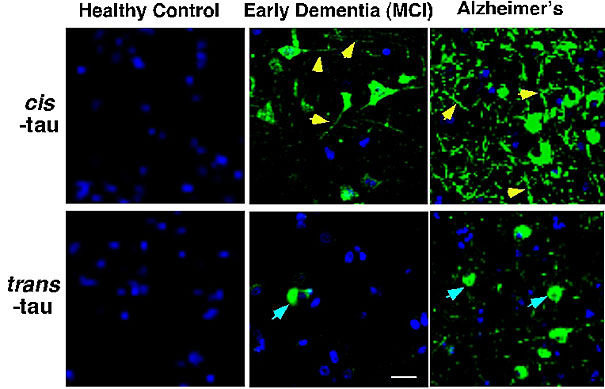
-
Paying hospitals to improve doesn’t work
A new study from Harvard School of Public Health finds no evidence that the largest hospital-based pay-for-performance program in the U.S. improved 30-day mortality rates, a measure of whether patients survive their hospitalization.

-
Writing the book of cancer knowledge
The Cancer Cell Line Encyclopedia is an academic-industry collaboration resource that marries deeply detailed cancer genome data with predictors of drug response, information that could lead to refinements in cancer clinical trials and future treatments.
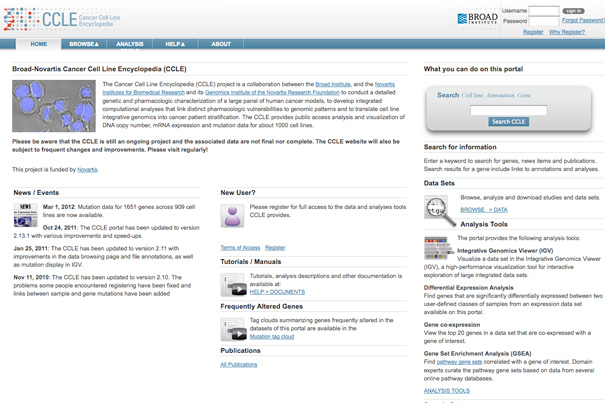
-
Pondering health, at home and abroad
The world is in the midst of a global health transition, with the population growing older and primary health threats coming from chronic, not infectious, diseases, according to speakers at an Advanced Leadership Initiative think tank.
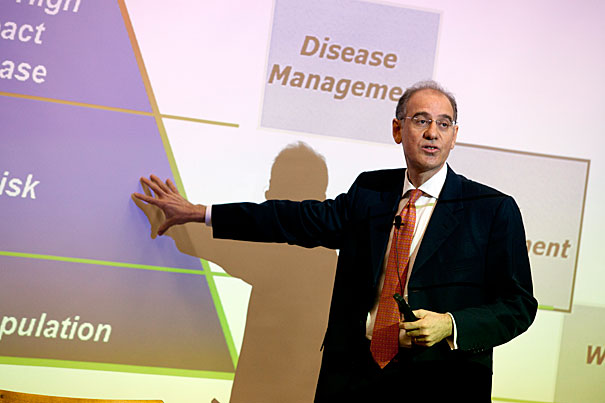
-
Insight on triple-negative breast cancer
Scientists from Harvard-affiliated Brigham and Women’s Hospital and Dana-Farber Cancer Institute and their colleagues have found a genetic marker that predicts which aggressive “triple-negative” breast cancers and certain ovarian cancers are likely to respond to platinum-based chemotherapies.
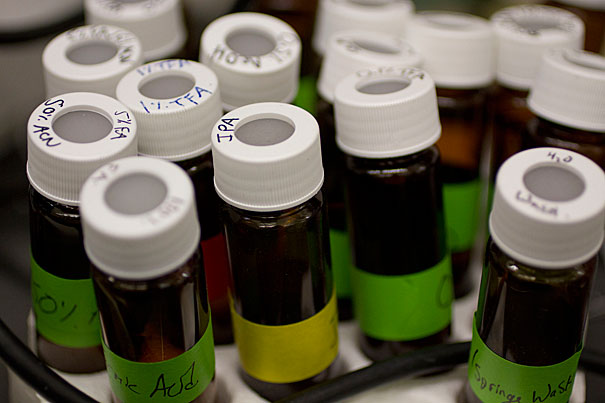
-
Whirlybirds and maple syrup
Perhaps botany, not boxing, is the real sweet science. Harvard Forest researchers are seeking to illuminate maple tree dynamics, investigating a possible link between autumn “mast seeding” and the sugar content of spring sap.

-
Rock sleuths
In one of the largest studies of its kind, Harvard researchers have found that carbon records from the mid-Neoproterozoic era can be “read” as a faithful snapshot of the surface carbon cycle between 717 million and 635 million years ago, a finding that directly challenges a decades-long belief of most scientists.

-
A therapist at your fingertips
In a first-of-its-kind study, researchers at Harvard are exploring the use of gamelike programs on smartphones to treat anxiety disorders.

-
Red meat raises red flags
A new study by Harvard School of Public Health researchers has found that red meat consumption is associated with an increased risk of total, cardiovascular, and cancer mortality.

-
Bleary America needs some shut-eye
Cranky, sleep-deprived America got some advice from experts at a Harvard School of Public Health Forum: Get some rest, and reap the health and productivity benefits shown in numerous scientific studies.
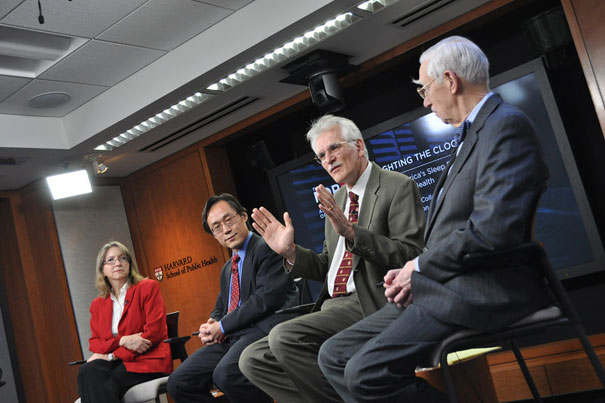
-
Clams, snails, and squids, oh my!
A new Museum of Natural History exhibit focuses on the enormous diversity of mollusks, which live everywhere from the deep ocean to fresh water to land.
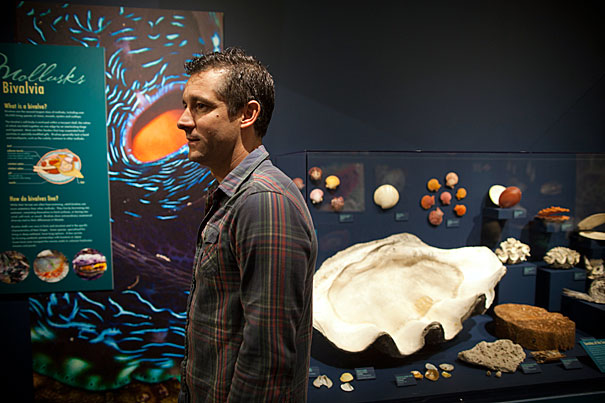
-
Experimental drug improves Cushing’s disease
A new investigational drug significantly reduced urinary cortisol levels and improved symptoms of Cushing’s disease in the largest clinical study of this endocrine disorder ever conducted.
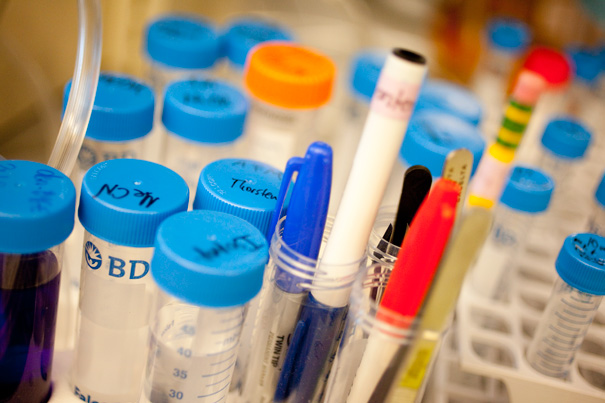
-
Obesity? Diabetes? We’ve been set up
The twin epidemics of obesity and its cousin, diabetes, have been the target of numerous studies at Harvard and its affiliated hospitals and institutions. Harvard researchers have produced a dizzying array of findings on the often related problems.

-
Alzheimer’s-like changes in the brain
A study by researchers at Harvard-affiliated Massachusetts General Hospital indicates that the inhaled anesthetic isoflurane impairs learning and memory in mammalian brains by damaging mitochondria, a finding that suggests the anesthetic desflurane may be a better choice for Alzheimer’s patients and others susceptible to cognitive dysfunction.
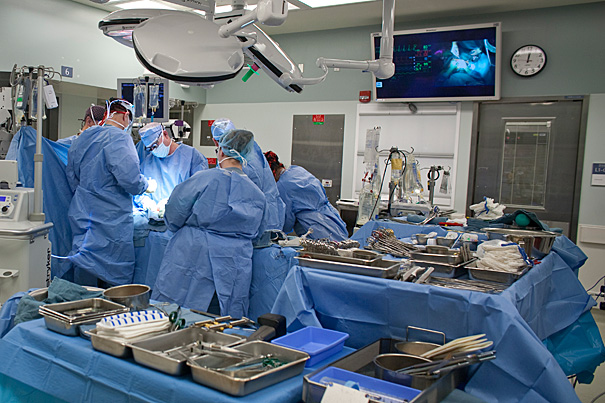
-
Using galaxies as yardsticks
Astronomy Professor Daniel Eisenstein is using a new understanding of spacing between galaxies to build a 3-D map of the cosmos and confirm theories about its structure.
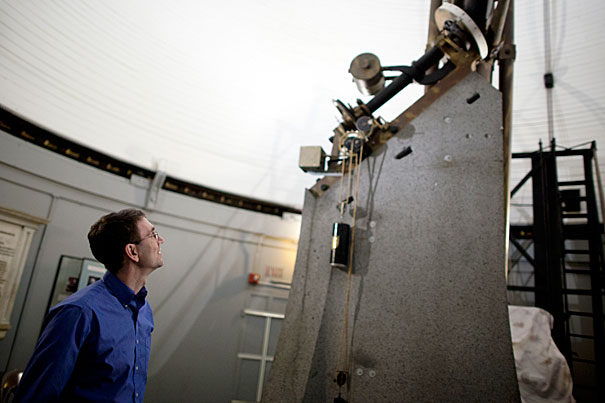
-
Cells that kill HIV-infected cells
Harvard researchers find that a subpopulation of the immune cells targeted by HIV may play an important role in controlling viral loads after initial infection, potentially helping to determine how quickly infection will progress.
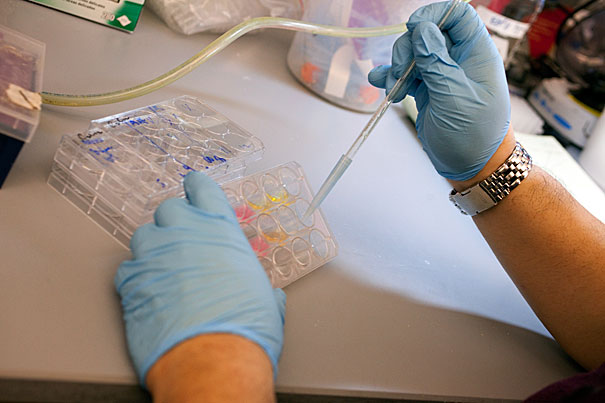
-
Evolutionary question, answered
A new paper shows that earlier studies of the peppered moth are “completely correct” — the moths evolved darker coloration via natural selection to better camouflage themselves during the height of the Industrial Revolution, then evolved back to their natural, mottled black-and-white color as air quality improved.

-
Genetic mechanics
As reported in the online version of Nature Structural & Molecular Biology on Feb. 5, researchers have produced 3-D images of the protein system that works to repair DNA. The images reveal that the proteins can actually alter their shape in what amounts to a genetic “pat-down,” or a way for the mechanism to identify areas of the genetic code that need repair.
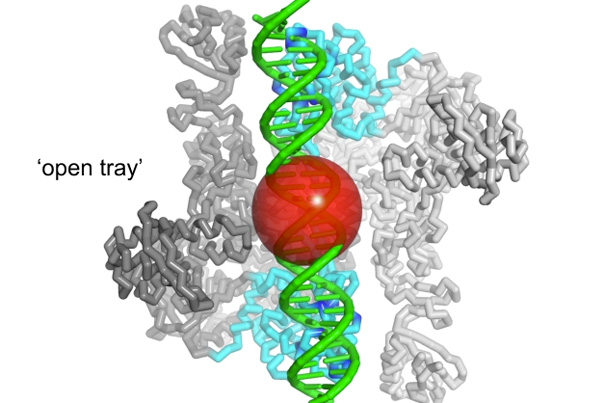
-
In the genes, but which ones?
A team of researchers, led Harvard Professor David I. Laibson and Christopher F. Chabris of Union College, has found that virtually all claims that intelligence is associated with specific genes are wrong.
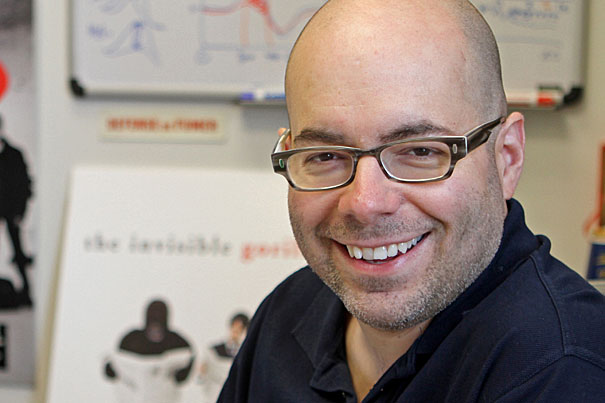
-
Repercussions of gender nonconformity
Children in the U.S. whose activity choices, interests, and pretend play before age 11 fall outside those typically expressed by their biological sex face increased risk of being physically, psychologically, and sexually abused, and of suffering from post-traumatic stress disorder (PTSD) by early adulthood, according to a new study led by researchers at Harvard School of Public Health.

-
Fears of bioterrorism or an accidental release
In a preview of what is likely now playing out in a closed-door meeting of the World Health Organization, a cadre of experts on infectious disease gathered Feb. 15 at the Harvard School of Public Health (HSPH) to debate whether efforts to combat a deadly form of flu have actually increased the risk to public health.

-
Sending DNA robot to do the job
Researchers at the Wyss Institute for Biologically Inspired Engineering at Harvard University have developed a robotic device made from DNA that could potentially seek out specific cell targets within a complex mixture of cell types and deliver important molecular instructions, such as telling cancer cells to self-destruct or programming immune responses.
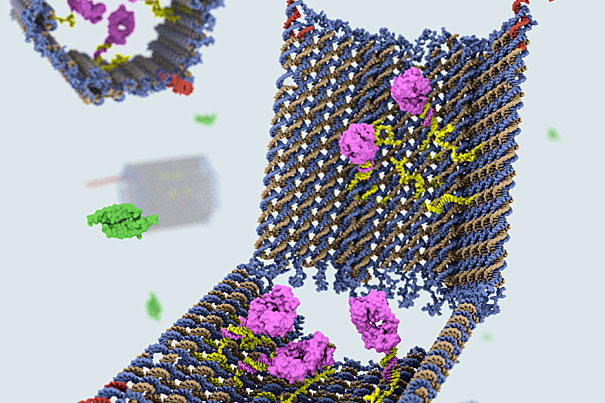
-
Willing a way to clean water
Kennedy School Fellow Daniele Lantagne is using her engineering background to expand on a program, partially developed by Professor Michael Kremer, to provide clean water to communities in rural areas. The soluti
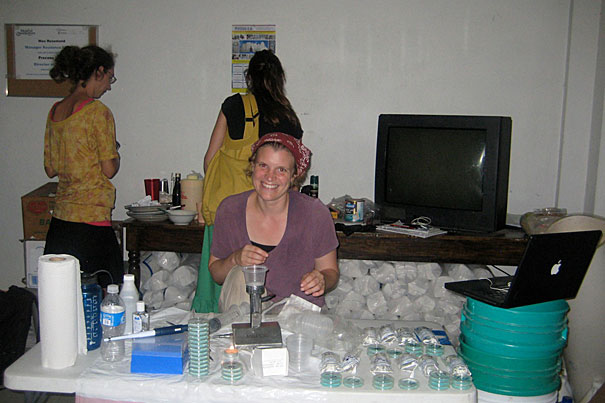
-
Pain relief for patients in Uganda
A collaboration between anesthesiologists at Massachusetts General Hospital and overworked doctors at an African hospital provides training in a technique that can soothe patients during surgical recoveries.
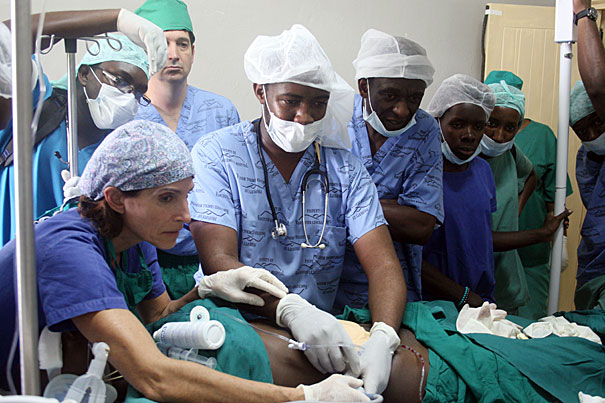
-
New subtype of ovarian cancer identified
Scientists at Dana-Farber Cancer Institute have identified a subtype of ovarian cancer able to build its own blood vessels, suggesting that such tumors might be especially susceptible to “anti-angiogenic” drugs that block blood vessel formation

-
Secrets of ancient Chinese remedy revealed
For roughly 2,000 years, Chinese herbalists have treated malaria using a root extract, commonly known as chang shan, from a type of hydrangea that grows in Tibet and Nepal. More recent studies suggest that halofuginone, a compound derived from this extract’s bioactive ingredient, could be used to treat many autoimmune disorders as well. Now, researchers from the Harvard School of Dental Medicine have discovered the molecular secrets behind this herbal extract’s power.
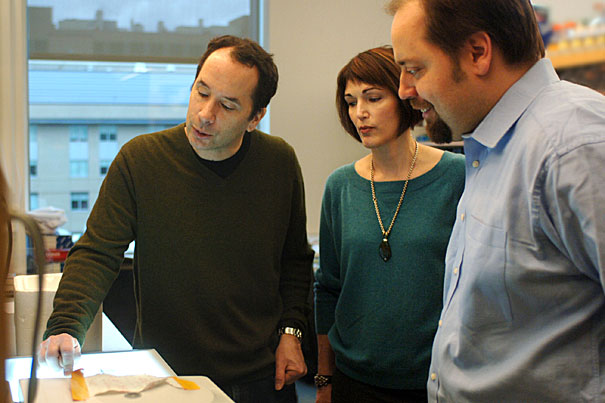
-
A swimsuit like shark skin? Not so fast
Experiments conducted in a Harvard lab reveal that, while sharks’ sandpaperlike skin does allow the animals to swim faster and more efficiently, the structure of some high-tech swimsuits has no effect when it comes to reducing drag as swimmers move through the water.

-
Exploring roots of hunger, eating behaviors
Synaptic plasticity — the ability of the synaptic connections between the brain’s neurons to change and modify over time — has been shown to be a key to memory formation and the acquisition of new learning behaviors. Now research reveals that the neural circuits controlling hunger and eating behaviors are also controlled by plasticity.
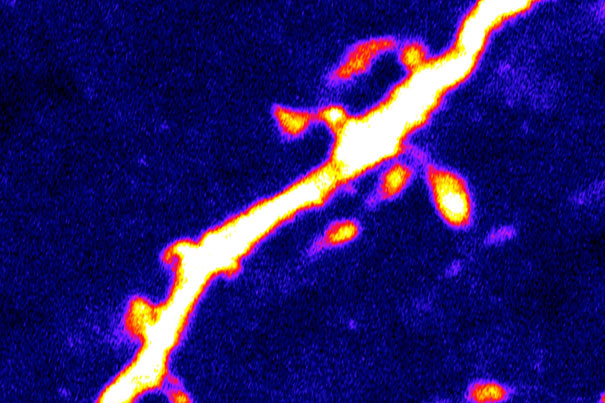
-
Deciding to go left or right
Researchers in a Harvard lab have developed a device, dubbed LADY GAGA, that allows them for the first time to precisely control airborne scents. They have used the device in their work unraveling how animals make navigational decisions based on their environment.

-
Right time for ‘end-of-life’ talk
A study by Harvard-affiliated Dana-Farber Cancer Institute finds that most terminally ill cancer patients discuss end-of-life care with physicians but that such discussions often occur late in their illness.


